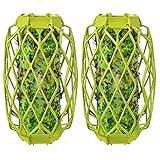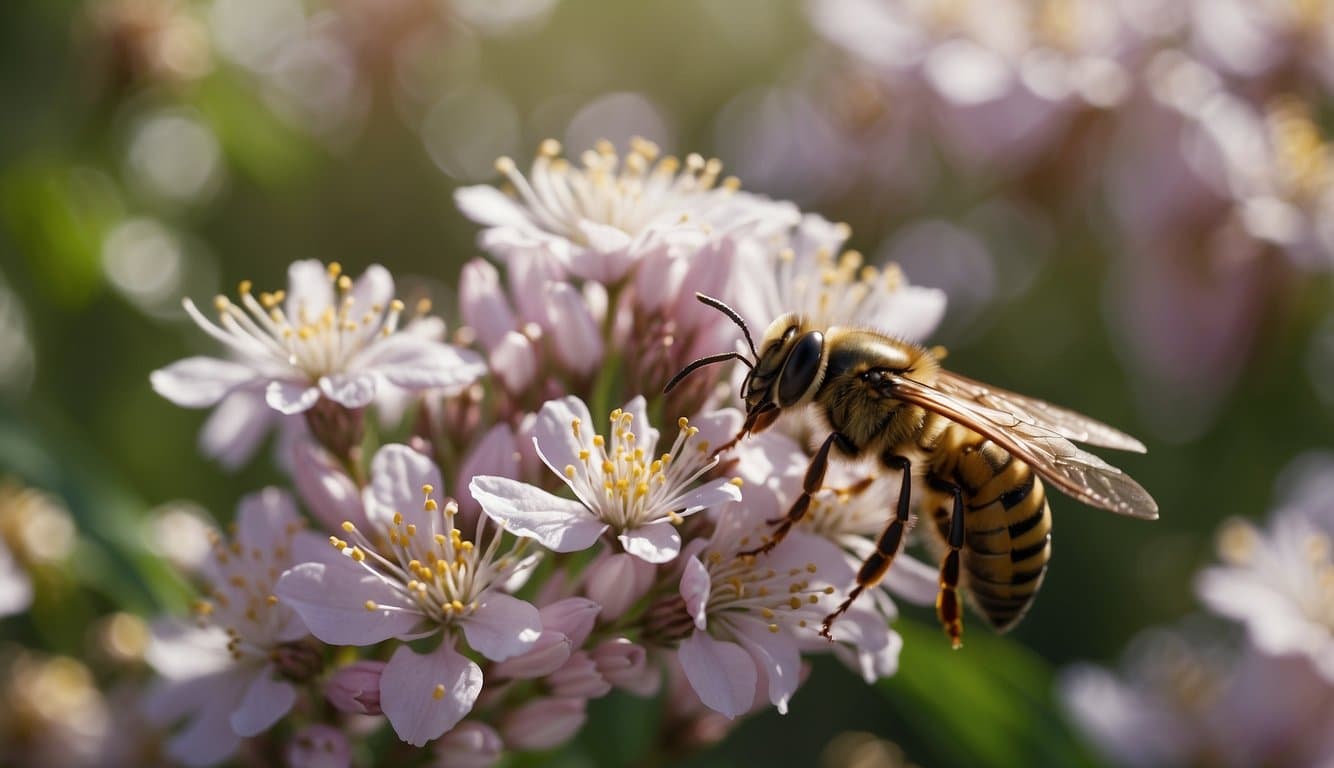| Question | Do Hornets Pollinate? |
|---|---|
| Answer | Yes, but Incidentally |
| More Info | Hornets, like other wasps, can contribute to pollination but do so incidentally. While their primary diet consists of other insects, they do visit flowers for nectar.
During these visits, pollen may attach to their bodies and be transferred to other flowers, resulting in pollination. However, hornets are not considered significant pollinators compared to bees, butterflies, and other specialized pollinating species. Their role in pollination is minimal and not their primary ecological function. |
When exploring the intricate dance of pollination, you might typically think of bees as the main performers.
However, amidst the buzz about bees, you should also consider the contributions of their relatives: hornets.
While they may not have the same reputation for pollination as bees, hornets do indeed play a role in this vital ecological process.
Their bodies are equipped with fine hairs that can collect pollen as they move from flower to flower in search of nectar.
Understanding the impact of hornets in pollination can give you broader insight into the biodiversity of your garden or local ecosystem.
Unlike bees, hornets are not renowned for their pollination prowess, but they inadvertently transfer pollen particles, contributing to the fertilization of plants.
This accidental yet beneficial activity supports the production of seeds and the continuation of various plant species.
Their visitations to flowers, prompted by their search for food, make them unsung heroes in the pollination narrative.
To delve into how these insects assist in the transfer of pollen, you can learn about the role of hornets in pollination and how they compare to their bee counterparts.
Hornet Biology
Hornets are important ecological actors whose biology is diverse and complex.
Hornet Species and Identification
You’ll find that hornets are a subset of wasps belonging to the family Vespidae.
Of the various species, the European hornet (Vespa crabro) and the Asian giant hornet (Vespa mandarinia) are perhaps the most well-known.
To identify hornets, look for larger-sized wasps with two pairs of wings and six legs, typically boasting a striking color combination of yellow, orange, or reddish-brown with black.
Key Identification Features:
- Size: Larger than common wasps
- Color: Yellow/red with black markings
- Wings: Two pairs
- Legs: Six
Role in the Ecosystem
Your local ecosystem benefits from hornets through their roles as both predators and accidental pollinators.
While they are not as effective as bees, hornets contribute to plant reproduction by transferring pollen as they travel from flower to flower.
Their primary role, however, lies in preying upon other insects, which helps in maintaining a balanced insect population.
Ecosystem Roles:
- Predation: Controlling insect populations
- Pollination: Assisting in plant reproduction (albeit less efficiently than bees)
By learning about the various hornet species and recognizing their crucial functions in natural settings, you gain insight into the dynamics of the habitats you explore.
Pollination by Hornets
In the intricate dance of pollination, hornets play a lesser-known but significant role, contributing to the process by which plants reproduce.
Consider hornets as inadvertent gardeners who, while in pursuit of nectar, assist in the proliferation of plant species.
Mechanisms of Pollination
Hornets, like other pollinators, have bodies that pick up pollen from one flower and inadvertently transfer it to another, facilitating the cross-pollination necessary for plant reproduction.
Their foraging behavior is crucial as they move from flower to flower, often covered with fine, pollen-catching hairs.
Though not traditionally recognized as primary pollinators, their contribution is tangible in ecosystems where they are present.
Comparison with Bees and Other Pollinators
Distinct from bees, hornets do not have the same hairy bodies or specialized pollen-carrying structures, making them less efficient as pollinators.
However, this does not diminish their value in the environment.
They are particularly important in pollinating certain plant species that may not be as attractive to bees or other more specialized insects.
Bees are often seen as the epitome of pollinators due to their specific adaptations for this task, but hornets and wasps also contribute to a diversity of pollinating habits within various ecosystems.
Thus, while hornets might not match the pollinating prowess of their bee relatives, their role is nevertheless beneficial to the perpetuation of many plant species.
Impact on Human Agriculture
Hornets have a complex and often overlooked role in agriculture, which affects the pollination of crops and, subsequently, food production and supply.
Hornets in Crop Pollination
Hornets are not typically known for their role in pollination, like bees or butterflies, but they do contribute incidentally.
Since they feed on nectar while hunting other insects, they can transfer pollen from one flower to another.
The impact of hornets on crop pollination varies widely based on the hornet species and the types of plants involved.
For instance, research suggests that hornets can positively influence the reproduction and survival of certain plant species.
This can be beneficial for agricultural systems that rely on the biodiversity of pollinators to maintain crop yields.
Challenges and Considerations
Yet, utilizing hornets in a way that benefits agriculture comes with several challenges and considerations.
The first is their reduced pollination efficiency compared to bees, due to their less hairy bodies which carry less pollen.
Furthermore, hornets are known to predate on other pollinators, potentially disrupting the existing pollination dynamics within an ecosystem.
Strategic considerations must also be given to the balance between encouraging pollinator diversity and preventing potential negative impacts on human health and crop productivity.
Frequently Asked Questions
In exploring the fascinating dynamics of pollination, you’ll discover how hornets play a unique role in nature, often overlooked in the shadow of their bee relatives.
What role do hornets play in the process of pollination?
Hornets contribute to the pollination process inadvertently as they visit flowers primarily in search of food. Pollen adheres to their bodies and is transferred to other flowers, aiding in plant reproduction.
Can hornets contribute to the pollination of plants similarly to bees?
While hornets do not have the same structures for carrying pollen as bees, they still manage to pollinate by transferring pollen on their bodies, albeit less effectively.
What impact do hornets have on agricultural pollination?
Hornets have a minimal direct impact on agricultural pollination compared to bees. They are not typically relied upon for commercial pollination services but may contribute to the pollination of wild flora.
Is there a difference between hornet and bee pollination effectiveness?
Yes, bees are more efficient pollinators, given their body structures and behaviors tailored for pollen collection and transfer. Hornets, on the other hand, do not collect pollen intentionally, making them less efficient.
Do hornet species vary in their ability to pollinate?
Variations among hornet species may exist regarding their effectiveness in pollination, with factors such as body size and hairiness influencing how much pollen they inadvertently transport.
What is the ecological significance of hornets in pollination networks?
The ecological importance of hornets in pollination networks is secondary to their role as predators. However, they still play a part in maintaining plant diversity and ecological balance within their environments.
Last update on 2025-04-20 / Affiliate links / Images from Amazon Product Advertising API



